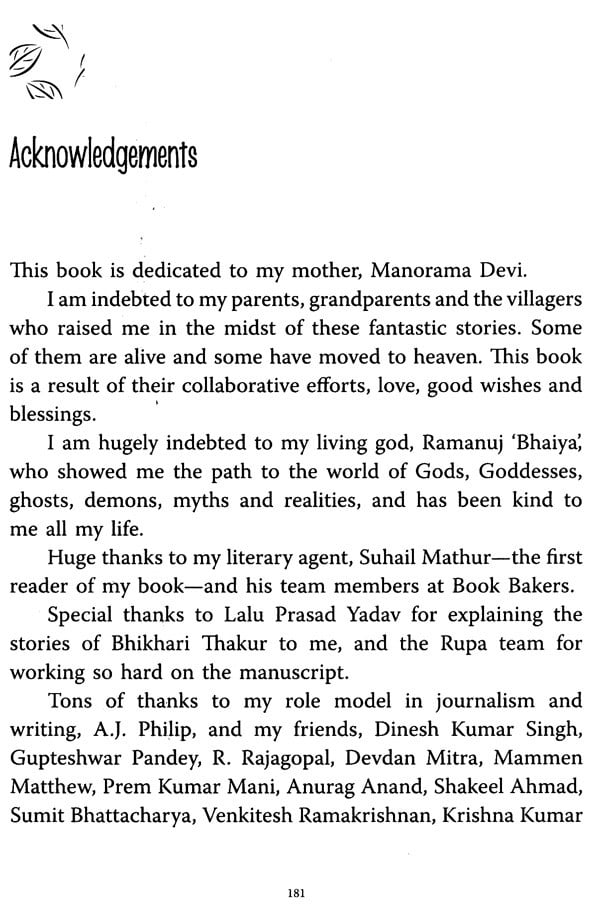
The Greatest Folk Tales Of Bihar
Book Specification
| Item Code: | TZZ611 |
| Author: | Nalin Verma |
| Publisher: | Rupa Publication Pvt. Ltd. |
| Language: | English |
| Edition: | 2021 |
| ISBN: | 9789353336622 |
| Pages: | 204 |
| Cover: | PAPERBACK |
| Other Details | 8.00 X 5.00 inches |
| Weight | 180 gm |
Book Description
He is the co-author of the much-acclaimed autobiography of Lalu Prasad Yadav, Gopalganj to Raisina: My Political Journey.
The lines mock Yahya Khan, Pakistan's then president and army chief who presided over the country at the time of its defeat from India in the 1971 war that created Bangladesh.
Diljar Mian, a fellow Muslim in my village, would parrot these lines in the sing-song way typical of rural Bihar. Roughly translated, they mean: '0 Yahya Khan, come lick mahiya with us/Let us go together' to kaluhari/Yahya's wheels are stuck in the Bay of Bengal/He will have fun licking mahiya with brother Subedar.'
Diljar Mian came from a poor barber-farmer family. His older brother, Subedar Mian, swept Dhaka's streets for a living, one of the many migrant workers from villages in Bihar before the Partition. Subedar would send money to his family and visit them once a year. But neither Diljar nor other villagers like him with kin in the erstwhile East Pakistan had seen or heard about their loved ones after India was partitioned in 1947.
My fellow villagers hardly bothered about the Partition; but they missed Subedar, who they had not seen for 23 years.
I was born l3 years after the Partition, but I had heard stories about Subedar, stories that grew more fantastic with each year passing without a word of his whereabouts. He had been a chowkidar who would patrol in the dark with a spear on his shoulder, sporting a peacock-feathered headgear that struck fear in the hearts of dacoits and thugs eyeing our village. He had been the chacha who had taught the kids how to wrestle.
Pakistan's defeat and the creation of Bangladesh with India's help had rekindled hope among the villagers and they believed that they would be able to see Subedar again. 'Ae Ahiya tu mahiya chaata .. .' was a reflection of their collective anger towards Khan-metaphor for Pakistan-who had held their Subedar back. They wished Khan would be vanquished and dragged off his high horse, down to their level, so that they could poke fun at him. The rhyme mocks Khan and celebrates the general's fall to ordinariness. As the middle-aged Diljar would sing away, the villagers would laugh their guts out. It was a poem that connected their lives to the echoes of the war.
Book's Contents and Sample Pages















